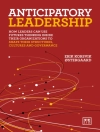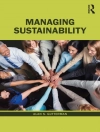Written by a team of veteran scholars and exciting emerging talents,
The SAGE
Handbook of Film Studies maps the field internationally, drawing out regional differences in the way that systematic intellectual reflection on cinema and film has been translated into an academic discipline.
It examines the conversations between Film Studies and its contributory disciplines that not only defined a new field of discourse but also modified existing scholarly traditions. It reflects on the field′s dominant paradigms and debates and evaluates their continuing salience. Finally, it looks forward optimistically to the future of the medium of film, the institution of cinema and the discipline of Film Studies at a time when the very existence of film and cinema are being called into question by new technological, industrial and aesthetic developments.
विषयसूची
Introduction – James Donald
Hooray for a Mickey Mouse Subject!
PART ONE: MAPPING TRADITIONS
North America – Dana Polan
European Film Scholarship – Ian Aitken
China – Stephanie Hemelryk Donald and Paola Voci
Cinema, Politics and Scholarship
Our Films, Their Films – Brian Shoesmith
Some Speculations on Writing Indian Film History
Film Research in Argentina – David Oubiña
Cinema Studies in Brazil – Ismail Xavier
Y Tu Crítica También – Carlos A. Gutiérrez
The Development of Mexican Film Studies at Home and Abroad
Australia – Noel King, Constantine Verevis and Deane Williams
Postcolonial and Transnational Perspectives – Bhaskar Sarkar
PART TWO: DISCIPLINARY DIALOGUES
Film and Philosophy – Murray Smith
Difficult Relations – Hamish Ford
Film Studies and Continental European Philosophy
Cinema and Art History – Angela Dalle Vacche
Film Has Two Eyes
Film and History – Vanessa R. Schwartz
Mass Media, Anthropology and Ethnography – Faye Ginsburg
Psychoanalysis and Cinema – Patrick Fuery
The Political Economy of Film – Tom O′Regan
TV′s Next Season? – Lynn Spigel
Film and Cultural Studies – Graeme Turner
PART THREE: PARADIGMS IN PERSPECTIVE
The Hollywood Industry Paradigm – Ruth Vasey
Formalist Tendencies in Film Studies – Warren Buckland
The Persistence of the Avant-Garde – Michael O′Pray
Film and (as) Modernity – Julian Murphet
Cinema/Ideology/Society – Jane Gaines
The Political Expectations of Film Theory
`We Do Not Die Twice′ – George Kouvaros
Feminist Perspectives in Film Studies – Alison Butler
Realism and Cinema
Authors and Auteurs – John Caughie
The Uses of Theory
Where Sound Is – Philip Brophy
Locating the Absent Aural in Film Theory
The Question of Genre in Cult Film and Fandom – Matt Hills
Between Contract and Discourse
Film Audiences – Jostein Gripsrud and Erlend Lavik
Re-Mapping Bollywood Cinema – Vijay Mishra
Film in the Context of Digital Media – Scott Mc Quire
लेखक के बारे में
Michael Renov, Professor of Critical Studies and Vice Dean for Academic Affairs, is the author of Hollywood′s Wartime Woman: Representation and Ideology and The Subject of Documentary, editor of Theorizing Documentary, and co-editor of Resolutions: Contemporary Video Practices, Collecting Visible Evidence, The SAGE Handbook of Film Studies and Cinema′s Alchemist: The Films of Peter Forgacs.
In 1993, Renov co-founded Visible Evidence, a series of international and highly interdisciplinary documentary studies conferences that have, to date, been held on four continents. He is one of three general editors for the Visible Evidence book series at the University of Minnesota Press, which has published 25 volumes on various aspects of nonfiction media since 1997. In 2005, he co-programmed the 51st annual Robert Flaherty Seminar, a week-long gathering of documentary filmmakers, curators and educators, creating 20 screening programs and filmmaker dialogues on the theme ‘Cinema and History.’
In addition to curating documentary programs around the world, he has served as a jury member at documentary festivals including Sundance, Silverdocs, the Buenos Aires International Independent Film Festival, Brazil′s It′s All True and the International Environmental Festival of Film and Video, also in Brazil. He has taught graduate seminars at the University of Stockholm and Tel Aviv University and has led documentary workshops in Jordan for the Royal Film Commission and in Cyprus. Renov′s teaching and research interests include documentary theory, autobiography in film and video, video art and activism and representations of the Holocaust.











